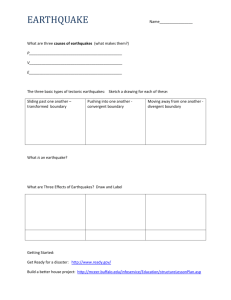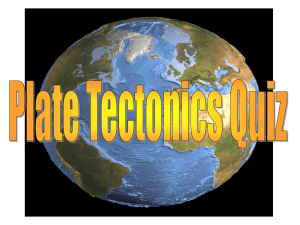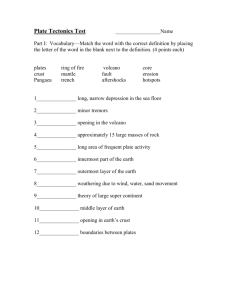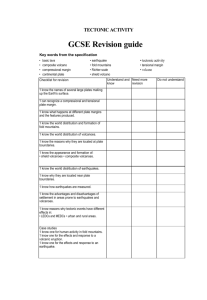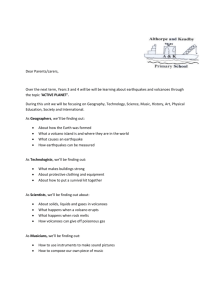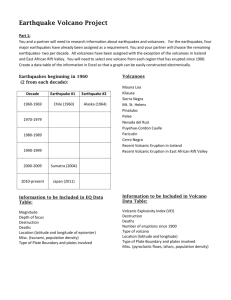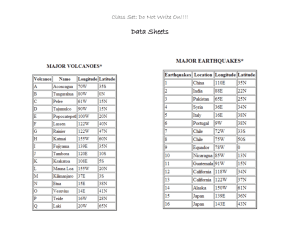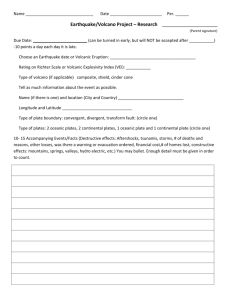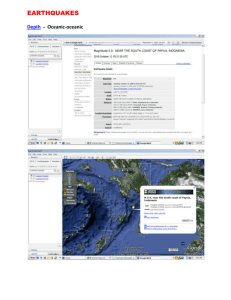Geography 1010
advertisement
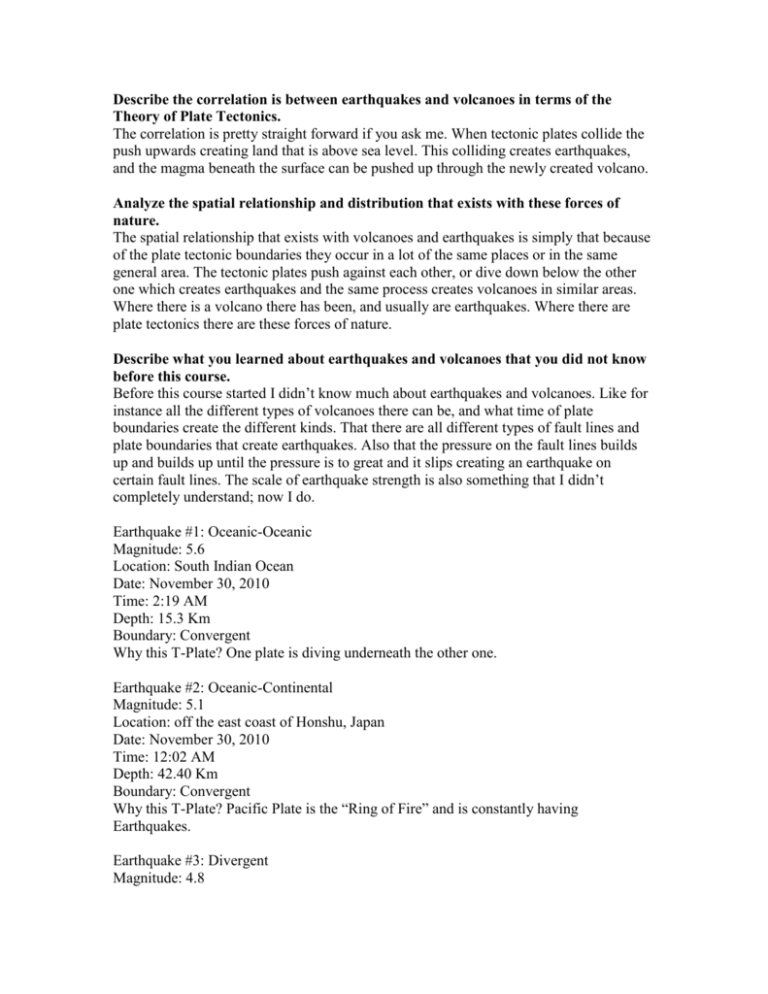
Describe the correlation is between earthquakes and volcanoes in terms of the Theory of Plate Tectonics. The correlation is pretty straight forward if you ask me. When tectonic plates collide the push upwards creating land that is above sea level. This colliding creates earthquakes, and the magma beneath the surface can be pushed up through the newly created volcano. Analyze the spatial relationship and distribution that exists with these forces of nature. The spatial relationship that exists with volcanoes and earthquakes is simply that because of the plate tectonic boundaries they occur in a lot of the same places or in the same general area. The tectonic plates push against each other, or dive down below the other one which creates earthquakes and the same process creates volcanoes in similar areas. Where there is a volcano there has been, and usually are earthquakes. Where there are plate tectonics there are these forces of nature. Describe what you learned about earthquakes and volcanoes that you did not know before this course. Before this course started I didn’t know much about earthquakes and volcanoes. Like for instance all the different types of volcanoes there can be, and what time of plate boundaries create the different kinds. That there are all different types of fault lines and plate boundaries that create earthquakes. Also that the pressure on the fault lines builds up and builds up until the pressure is to great and it slips creating an earthquake on certain fault lines. The scale of earthquake strength is also something that I didn’t completely understand; now I do. Earthquake #1: Oceanic-Oceanic Magnitude: 5.6 Location: South Indian Ocean Date: November 30, 2010 Time: 2:19 AM Depth: 15.3 Km Boundary: Convergent Why this T-Plate? One plate is diving underneath the other one. Earthquake #2: Oceanic-Continental Magnitude: 5.1 Location: off the east coast of Honshu, Japan Date: November 30, 2010 Time: 12:02 AM Depth: 42.40 Km Boundary: Convergent Why this T-Plate? Pacific Plate is the “Ring of Fire” and is constantly having Earthquakes. Earthquake #3: Divergent Magnitude: 4.8 Location: eastern Mediterranean Sea Date: December 6, 2010 Time: 1:20 AM Depth: 51.20 Km Boundary: Divergent Why this T-Plate? Because the plates are pulling apart this creates Earthquakes. Earthquake #4: Continental-Continental Magnitude: 4.6 Location: 12.271N, 44.036E Date: December 5, 2010 Time: 4:07 AM Depth: 9.5 Km Boundary: Divergent Why this T-Plate? Because the plates are pulling away from each other, it creates Earthquakes. Earthquake #5: Transform Magnitude: 5.5 Location: Eastern Xizang Date: November 30, 2010 Time: 4:39 PM Depth: 17.5 Km Boundary: Continental Transform Why this T-Plate? Because the fault is pulling against the other side creating Earthquakes. Volcano #1: Name: Sunset Crater Type: Cinder Cone Plate Boundary: Continental Picture: Volcano #2: Name: Mayor Island Type: Caldera Plate Boundary: Oceanic-Oceanic Picture: Volcano #3: Name: Belknap Type: Shield Volcano Plate Boundary: Continental-Oceanic Picture: Volcano #4: Name: The Quill Type: Stratovolcano (Composite) Plate Boundary: Oceanic-Oceanic Picture:
